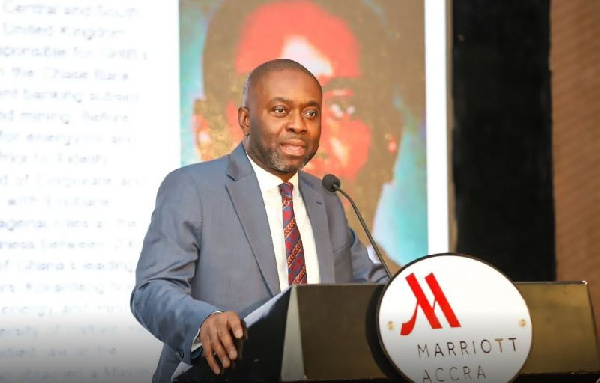The Minerals Income Investment Fund (MIIF) has announced plans to invest some US$30million into legally established small-scale mining ventures through an incubation programme.
The initiative – Small-Scale Mining Incubation Programme – seeks to assist small-scale miners to grow and develop into responsible and sustainable mid-tier mining operators.
The programme is expected to support formalisation of the small-scale mining sector, which contributes about 30 to 40 percent of the country’s total gold output annually. It is hoped that the investment will discourage the galamsey menace, enhance job creation and also guarantee environmental practices and safety.
MIIF’s Chief Executive Officer, Edward Nana Yaw Koranteng – referencing a report by the Africa Centre for Energy Policy (ACEP), estimated that the sector has potential to generate about US$2.1billion annually.
The incubation programme, he said, will thus support the companies with capital in the form of machinery; provide corporate governance support in line with environmental, social and governance (ESG) principles; and ensure provision of markets through MIIF’s gold trade desk, among others.
“The idea is to develop them into junior mines, similar to what pertains in Canada and other countries. Some of them have huge potential,” he said.
Mr. Koranteng, who said this at a stakeholder forum organised by MIIF in Accra, stated that the initiative will be executed under a rigorous process. This includes verifying the resources of selected ventures using the services of institutions like the University of Mines and Technology (UMaT).
Selected small-scale mining companies will be listed on the Ghana Alternative Market (GAX). Meanwhile, MIIF will look to exit its investments by offering share buy-back to management; IPOs through the GAX, and trade sales to other investors.
MIIF’s latest move underscores the growing concerns and commitment to ensuring responsible resource extraction and sustainable economic development. By channelling investments into licenced small-scale mining operations, MIIF is poised to strike a balance between financial returns and environmental stewardship.
The stakeholder forum, which is expected to become a regular part of MIIF’s activities, was held under the theme ‘MIIF as a lever for development in Ghana, investing in a responsible, transparent accountable manner to secure the future wealth for Ghana’.
The event brought together several industrial experts, including civil society organisations (CSOs) in resource governance and transparency, to deliberate on the work of MIIF so far and the way forward.
“We are looking at building Africa’s biggest minerals sovereign wealth fund, and we need the input of all stakeholders to see how we can develop the object to refine the move toward realisation of this goal – and to make sure we are able to build something that will create intergenerational value for Ghanaians,” Edward Nana Yaw Koranteng explained.
The Deputy Minister of Lands and Natural Resources responsible for Mines, George Mireku Duker said: “Without the value chain development intended to create local wealth from the resources, acquire know-how and boost employment, we will forever live on scraps and not enjoy our God-given natural resources”.
It is against this backdrop that he recognised MIIF as a lever of development – adding that mining, small and large scale, in the country provides direct and indirect means of benefits and livelihood to over 4 million locals.
Government, he said, is committed to wealth-creation for Ghanaians – in view of which, laws are being aligned in the mining sector to make this happen.
“For instance, mining supplies – thanks to work by the Minerals Commission and my ministry, are now wholly in the hands of Ghanaians. Additionally, tailings storage facility construction, medical services, assaying and motor-rewinding are now reserved exclusively for Ghanaian businesses.”
However, he observed that: “Local content supplies based on importing from abroad and selling are meaningless if we don’t take steps to encourage manufacturing and selling; a lot of wealth ends up being exported to other countries”.
He therefore entreated MIIF, the Minerals Commission (MINCOM), the sector ministry and general business community to unite in order to make this a reality.
Also, he charged that Local Content and Participation must not end at just supplies. Given this, he charged MIIF to partner with indigenous investors to take up shareholding stakes in mining companies soon.
“This is the only means we can use to build local champions in the sector for the state to benefit,” he stated, while noting that the opportunity space for investment is growing daily.
“MIIF therefore has to take the opportunities now, and ensure that the country’s interest is always protected and paramount.”
Source: thebftonline.com

